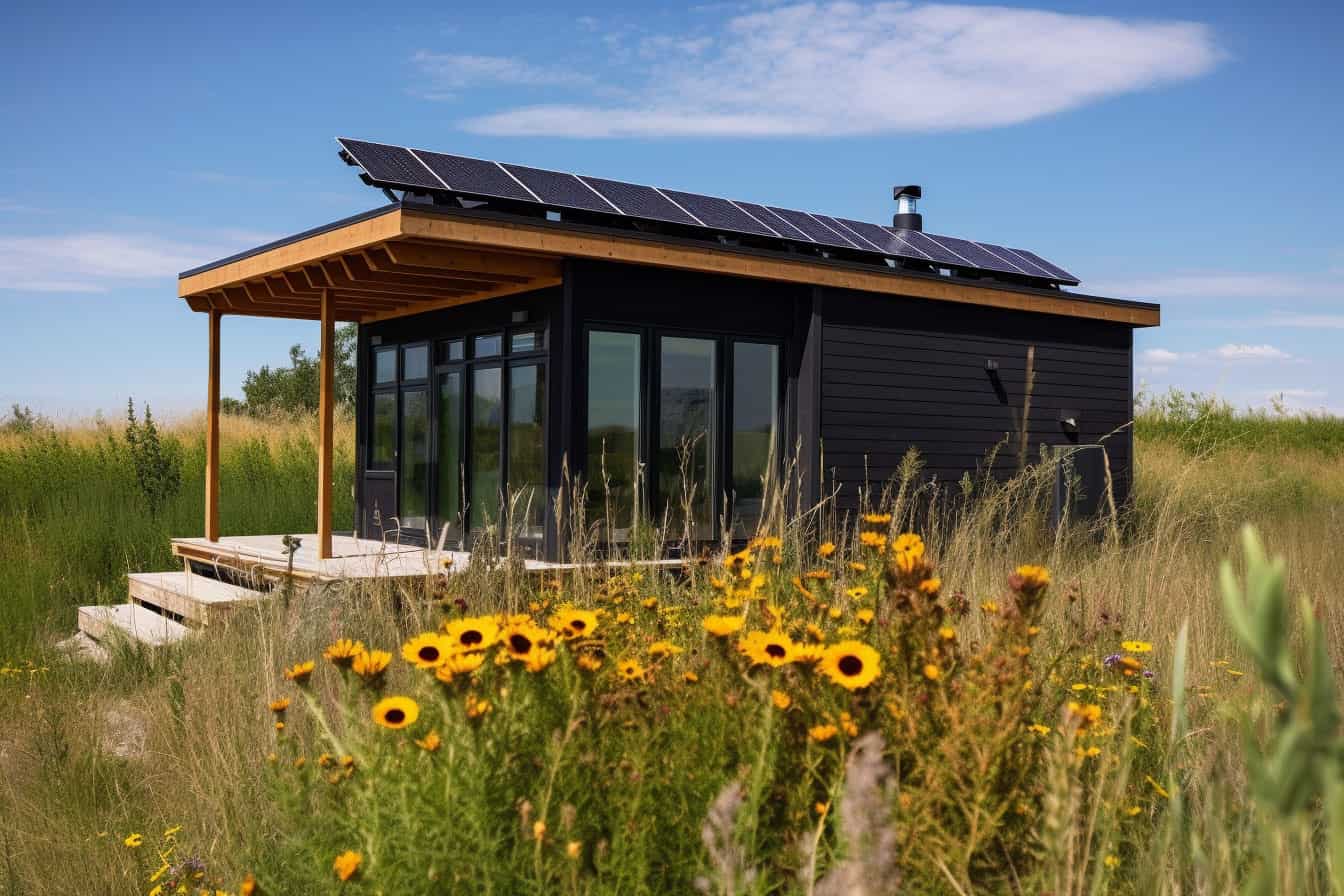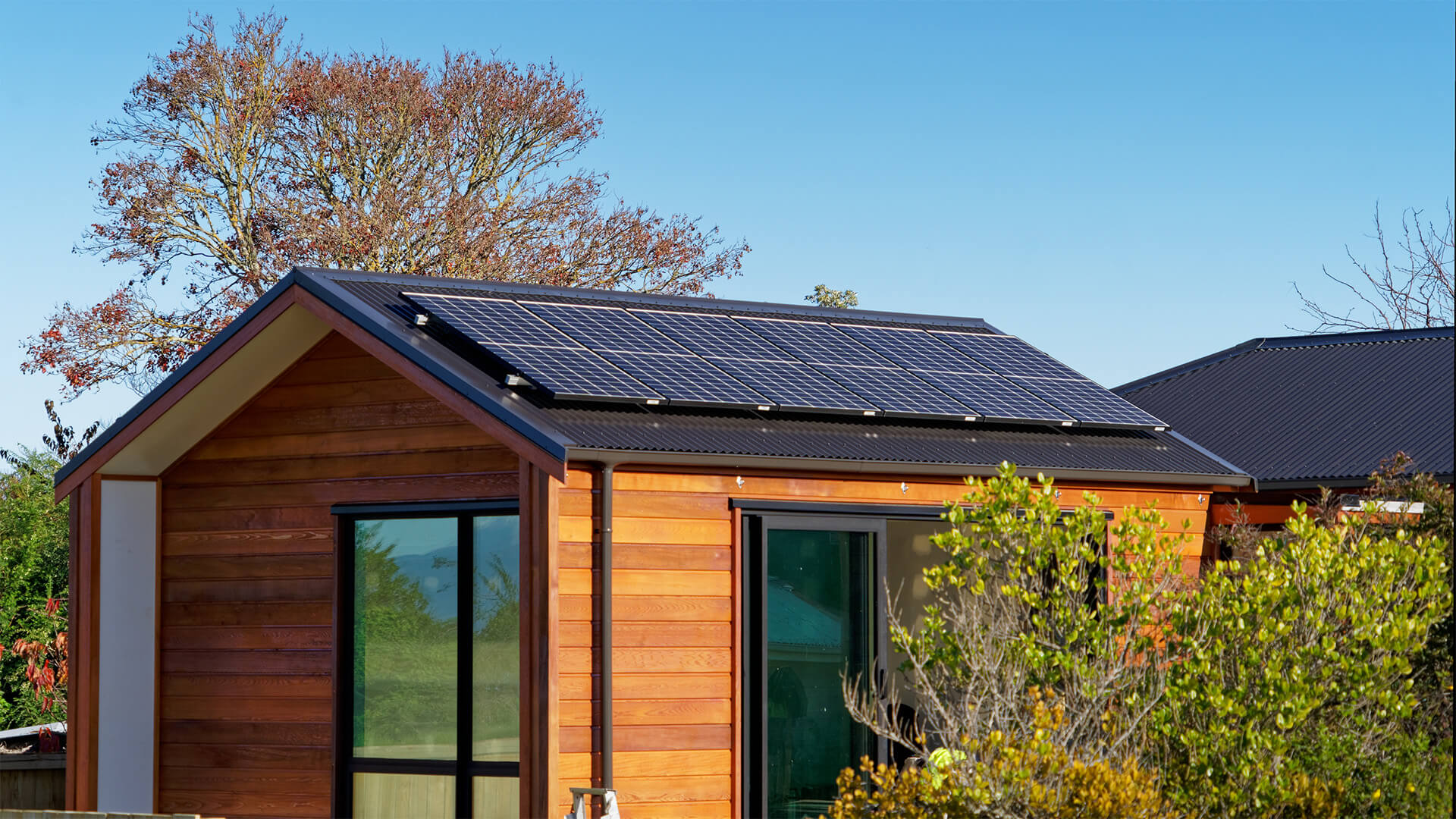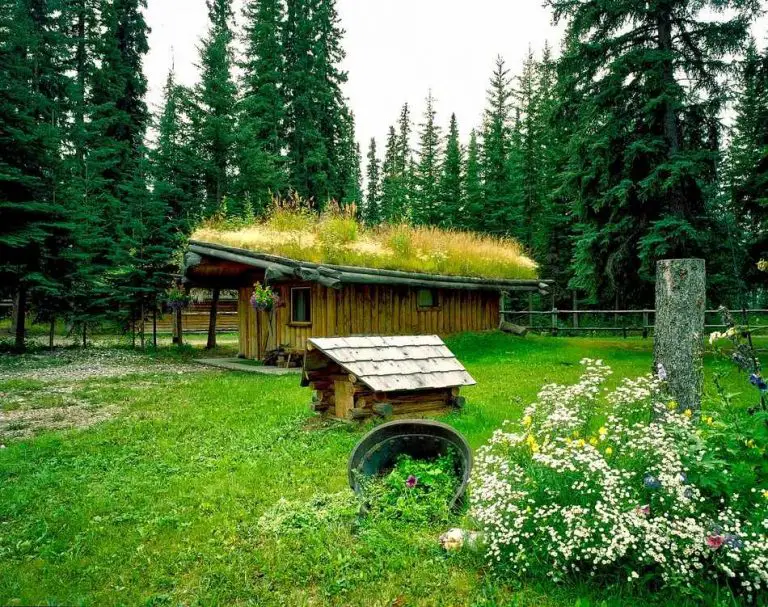How to go off grid uk – Embark on a journey towards self-sufficiency with our comprehensive guide to going off-grid in the UK. Discover the motivations, legal considerations, energy generation, water management, food production, waste management, financial planning, and community building strategies to create a sustainable and fulfilling life beyond the grid.
Reasons for Going Off-Grid
In the United Kingdom, the pursuit of self-sufficiency is gaining traction as concerns about environmental degradation, economic instability, and government dependence escalate. Individuals and communities are seeking ways to reduce their reliance on centralized systems and live more sustainably.
Environmental concerns stem from the recognition of climate change and its impact on ecosystems. Off-grid living allows individuals to reduce their carbon footprint by generating their own energy from renewable sources and implementing sustainable practices.
Economic Instability
Economic instability, such as inflation and job insecurity, has led many to consider off-grid living as a means of financial resilience. By producing their own food, generating their own energy, and reducing their dependence on external goods and services, individuals can mitigate the impact of economic fluctuations.
Government Dependence
Some individuals seek off-grid living to reduce their dependence on government systems. Concerns about privacy, surveillance, and political polarization have led some to pursue a more autonomous lifestyle.
Successful Transitions
Numerous examples of successful off-grid transitions exist in the UK. The Findhorn Ecovillage in Scotland is a renowned community that has been living off-grid for over 40 years, demonstrating the viability of sustainable living.
Legal and Practical Considerations

Going off-grid in the UK has legal and practical implications that need to be carefully considered.The most important legal consideration is that it is not illegal to go off-grid in the UK. However, there are a number of regulations that you need to be aware of, including zoning regulations, building codes, and utility disconnection procedures.
Zoning Regulations
Zoning regulations are laws that govern the use of land. In the UK, zoning regulations are set by local councils. These regulations can restrict the types of activities that can be carried out on a piece of land, including whether or not you can build a home off-grid.It is important to check with your local council to see if there are any zoning regulations that would prevent you from going off-grid.
If there are, you may need to apply for a variance or special permit.
Building Codes
Building codes are laws that govern the construction of buildings. In the UK, building codes are set by the government. These codes ensure that buildings are safe and habitable.If you are planning to build a home off-grid, you will need to make sure that it meets all of the relevant building codes.
This may require you to hire a qualified builder.
Utility Disconnection Procedures
If you are going off-grid, you will need to disconnect your home from the utility grid. This includes disconnecting from the electricity grid, the gas grid, and the water grid.The process for disconnecting from the utility grid can vary depending on your utility provider.
It is important to contact your utility provider to find out what the process is and what fees you will need to pay.
Obtaining Necessary Permits and Approvals
In addition to the legal considerations discussed above, you may also need to obtain certain permits and approvals before you can go off-grid. These permits and approvals may include:*
- A building permit
- A septic tank permit
- A well permit
The specific permits and approvals that you need will vary depending on your location and the type of off-grid system that you are installing. It is important to contact your local council to find out what permits and approvals you need.
Energy Generation and Storage
Energy generation and storage are crucial for off-grid living in the UK. Renewable energy sources such as solar, wind, and hydroelectricity are viable options, each with its advantages and disadvantages. Energy storage systems, including batteries, generators, and thermal storage, ensure a continuous energy supply.
Renewable Energy Sources
- Solar energy:Solar panels convert sunlight into electricity, suitable for remote areas with ample sunlight. They are relatively low-maintenance and have long lifespans.
- Wind energy:Wind turbines harness wind power to generate electricity. They are suitable for windy locations and can provide a consistent energy source.
- Hydroelectricity:Hydroelectric systems use the flow of water to generate electricity. They require a reliable water source and can provide a significant amount of energy.
Energy Storage Systems
- Batteries:Batteries store electrical energy and can provide a backup power source. They are relatively expensive and have a limited lifespan.
- Generators:Generators use fossil fuels to generate electricity. They are noisy and emit pollutants but can provide a reliable backup power source.
- Thermal storage:Thermal storage systems store heat energy in materials such as water or rocks. They can provide heating and hot water, reducing reliance on other energy sources.
Comparison of Energy Generation and Storage Methods
| Method | Efficiency | Cost | Environmental Impact |
|---|---|---|---|
| Solar panels | 15-25% | High | Low |
| Wind turbines | 20-40% | High | Moderate |
| Hydroelectricity | 80-90% | High | Low |
| Batteries | 85-95% | High | Moderate |
| Generators | 20-35% | Low | High |
| Thermal storage | 60-80% | Moderate | Low |
Water Management
Access to clean and reliable water is crucial for off-grid living. This section explores various methods for collecting, purifying, and storing water, along with best practices for conservation and management.
Rainwater Harvesting
- Collection:Rainwater can be collected from rooftops, gutters, and downspouts into storage tanks or cisterns.
- Filtration:Rainwater typically requires filtration to remove impurities and debris before use.
- Storage:Rainwater can be stored in tanks made of plastic, metal, or concrete, ensuring proper sealing and protection from sunlight.
Well Drilling
- Drilling:Wells are drilled into underground aquifers to access groundwater.
- Pumping:Pumps are used to extract water from the well for household use.
- Water Quality:Well water may require testing and treatment to ensure its safety for consumption.
Water Filtration Systems
- Filtration:Water filtration systems remove contaminants and impurities from water sources, such as rainwater or well water.
- Types:Filtration systems can range from simple gravity-fed filters to advanced reverse osmosis systems.
- Maintenance:Regular maintenance and replacement of filters are essential for optimal performance.
Water Conservation and Management
- Water-Efficient Appliances:Use appliances with low water consumption ratings, such as low-flow showerheads and toilets.
- Leak Detection and Repair:Regularly check for leaks in plumbing fixtures and pipes to minimize water loss.
- Water Reuse:Collect rainwater or greywater (from showers or sinks) for non-potable uses, such as irrigation or cleaning.
Food Production

Achieving self-sufficiency in food production is crucial for off-grid living. This involves implementing sustainable gardening and farming techniques, raising livestock, foraging, and preserving food. Each method offers unique benefits and challenges, requiring careful planning and execution.
Sustainable Gardening and Farming
Sustainable gardening and farming practices prioritize soil health, water conservation, and biodiversity. Techniques include:
- Composting: Decomposing organic matter to create nutrient-rich soil.
- Crop rotation: Alternating different plant species to prevent soil depletion and disease.
- Permaculture: Designing ecosystems that mimic natural patterns, maximizing efficiency and resilience.
- Hydroponics: Growing plants in nutrient-rich water without soil.
Raising Livestock
Raising livestock provides a source of meat, milk, and eggs. Common livestock for off-grid living include:
- Chickens: Easy to care for and provide eggs and meat.
- Goats: Hardy animals that can provide milk, meat, and fiber.
- Pigs: Omnivorous animals that can convert waste into meat.
- Rabbits: Prolific breeders that provide meat and fur.
Foraging
Foraging involves gathering edible plants and mushrooms from the wild. This requires knowledge of local flora and safety precautions.
Preserving Food
Preserving food extends its shelf life and prevents spoilage. Common preservation methods include:
- Canning: Sealing food in airtight containers and heating it to kill bacteria.
- Drying: Removing moisture from food to prevent spoilage.
- Freezing: Storing food at low temperatures to slow down spoilage.
- Fermentation: Preserving food through the action of microorganisms, such as in sauerkraut or yogurt.
The following table summarizes different food production methods and their nutritional value, space requirements, and labor intensity:
| Method | Nutritional Value | Space Requirements | Labor Intensity |
|---|---|---|---|
| Gardening | High in vitamins, minerals, and fiber | Varies depending on crop | Moderate to high |
| Farming | Provides meat, milk, and eggs | Significant | High |
| Foraging | Varies depending on species | Wild areas nearby | Low to moderate |
| Preserving | Extends shelf life | Minimal | Moderate |
Waste Management

Waste management is a crucial aspect of off-grid living. Unlike in urban areas where waste collection services are readily available, off-grid dwellers need to develop sustainable strategies to manage their waste responsibly. This involves minimizing waste production, reusing and recycling materials, and implementing appropriate disposal methods.
- Composting:Composting is a natural process that breaks down organic waste, such as food scraps, garden waste, and paper products, into a nutrient-rich soil amendment. Composting reduces the amount of waste sent to landfills and provides a valuable resource for gardening.
- Anaerobic Digestion:Anaerobic digestion is a process that converts organic waste into biogas, which can be used for cooking, heating, or generating electricity. This method is particularly suitable for off-grid systems that require a reliable energy source.
- Recycling:Recycling involves collecting and processing materials such as plastic, metal, glass, and paper for reuse. Recycling reduces the demand for raw materials and helps conserve natural resources.
Minimizing Waste, How to go off grid uk
Minimizing waste is essential for sustainable off-grid living. Here are some tips for reducing waste production:
- Choose reusable items over single-use products.
- Buy products with minimal packaging.
- Repair and reuse items instead of discarding them.
- Donate unwanted items to charities or thrift stores.
- Avoid food waste by planning meals carefully and storing food properly.
Reusing and Recycling
Reusing and recycling materials not only reduces waste but also conserves resources. Here are some tips for reusing and recycling waste:
- Use reusable containers for food and beverages.
- Repurpose old items into new ones, such as using old tires as planters.
- Collect and recycle materials such as plastic, metal, glass, and paper.
- Compost organic waste to create nutrient-rich soil.
By implementing these waste management strategies, off-grid dwellers can minimize their environmental impact, promote sustainability, and live a more eco-friendly lifestyle.
Financial Planning: How To Go Off Grid Uk
Going off-grid involves significant financial implications that require careful planning. Start-up costs include land acquisition, infrastructure setup, and equipment purchases. Ongoing expenses encompass maintenance, utilities, and food production.
Budgeting and Saving
Creating a comprehensive budget is crucial. Track income and expenses, prioritizing essential costs like food, shelter, and energy. Implement saving strategies, such as automatic transfers to dedicated savings accounts.
Investment
Consider investments that align with off-grid living. Renewable energy systems, rainwater harvesting infrastructure, and food production facilities can provide long-term financial benefits.
Income Streams
- Homesteading: Raising livestock, growing crops, and producing goods for personal consumption or sale.
- Remote Work: Utilize technology to work from anywhere, offering services like writing, coding, or consulting.
- Small Businesses: Start a business that leverages off-grid resources, such as eco-tourism, renewable energy consulting, or handcrafted products.
Community Building and Support

In off-grid living, a sense of community is vital for both practical and emotional well-being. Neighbors can provide assistance with tasks, share resources, and offer companionship in a sometimes isolated environment.
Building connections with neighbors is crucial. Attend local events, participate in community projects, and make an effort to get to know those around you. Establishing regular social gatherings, such as potlucks or movie nights, can foster a sense of belonging.
Support Networks
Forming support networks is essential for accessing resources and assistance. Join local off-grid groups, attend workshops, and connect with online communities. These networks can provide valuable information on suppliers, technical expertise, and emergency preparedness.
Successful Off-Grid Communities
Several successful off-grid communities have demonstrated the power of community building. The intentional community of Earthship Biotecture in New Mexico has created a thriving off-grid ecosystem with shared resources, sustainable practices, and a strong sense of togetherness.
Wrap-Up
Living off-grid in the UK offers a path to greater independence, resilience, and connection with nature. By embracing sustainable practices, building supportive communities, and embracing the challenges and rewards of off-grid living, you can create a life that is both fulfilling and environmentally conscious.
FAQ Explained
What are the main reasons for going off-grid in the UK?
Individuals and communities choose to go off-grid for various reasons, including concerns about environmental degradation, economic instability, and government dependence.
Is it legal to go off-grid in the UK?
Yes, it is legal to go off-grid in the UK, but you must comply with local zoning regulations, building codes, and utility disconnection procedures.
What are the best renewable energy sources for off-grid living in the UK?
Suitable renewable energy sources for off-grid living in the UK include solar, wind, and hydroelectricity.
How can I manage water off-grid?
Off-grid water management involves collecting, purifying, and storing water through methods such as rainwater harvesting, well drilling, and water filtration systems.
What are the financial implications of going off-grid?
Going off-grid requires careful financial planning, considering start-up costs, ongoing expenses, and potential income sources.
